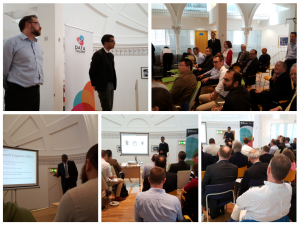The School of Computer Science at the University of St Andrews offers funding for up to six students to undertake PhD research starting in the Fall of 2017 in any of the areas of research carried out by its academic faculty (which includes, but is not limited to, Artificial Intelligence and Symbolic Computation, Computer Systems Engineering, Human-Computer Interaction, and Programming Languages).
We are looking for highly motivated research students willing to be part of a diverse and supportive research community.
Applicants must hold a BSc or MSc in an area appropriate for their proposed topic of study (usually Computer Science, but not restricted to it). The Scholarship covers PhD fees and provides a tax-free maintenance stipend of £14,296 per year for 3.5 years. Exceptional students can apply for an additional £2,000 per year. International applications are welcome.
We especially encourage female applicants and underrepresented minorities to apply. Admission is competitive but candidate selection takes into account the motivation, skills and previous experience of the candidates. If you are interested, please get in contact with us by e-mail even if you are not sure of your eligibility or strength as a candidate (write an e-mail to pg-admin-cs@st-andrews.ac.uk Subject: Informal PhD Inquiry). We will facilitate contact with a member of research staff in your area of interest (for a list of existing faculty and areas of research see http://www.cs.st-andrews.ac.uk/prospective-pg/postgraduate-supervisors).
For further information, including the step-by-step procedure on how to apply please check our postgraduate-research web page (http://www.cs.st-andrews.ac.uk/prospective-pg/research-degrees). The closing date for applications is March 31st 2017 and we will make decisions on studentship allocation by April 30th 2017. Before preparing a full application we recommend that you contact us by e-mail at pg-admin-cs@st-andrews.ac.uk.


